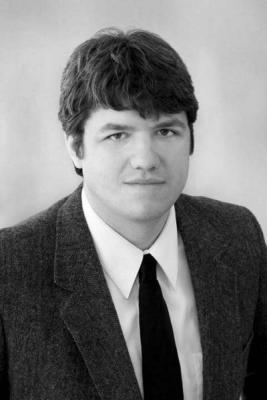May 29 2013
A University of Massachusetts Amherst chemical engineer, Paul Dauenhauer, is one of only 14 scientists worldwide to receive recognition for scientific innovation from the 2013 DuPont Young Professors Program, the company recently announced. He will receive $75,000 over three years to advance progress on his discovery of a process for making renewable plastics and chemicals from biomass.
 Paul Dauenhauer
Paul Dauenhauer
Specifically, Dauenhauer and colleagues use inorganic catalysts such as low-cost zeolites in high-temperature processes for converting wood, grasses and agricultural byproducts into monomers to make plastics and chemicals through rapid, non-biological methods.
“We’ve had several promising discoveries, so now we can make paraxylene (p-xylene) at 75 percent yield from sugars found in biomass,” he says. “With this support from DuPont, we’d love to make it even better.”
As the DuPont award was being announced, the Dauenhauer lab had an article published in an early online edition of the journal, “Green Chemistry,” revealing what he calls a major breakthrough in this process. “We have discovered a technology to improve the yield of p-xylene to 90 percent. This is significantly better than the previous work, and it dramatically improves the economic potential of the overall process to make green chemicals.”
One benefit of thermochemical methods is their low cost compared to biological strategies. Dauenhauer and colleagues’ major product at present is paraxylene, a monomer used for making things like plastic bottles. “It would absolutely be a breakthrough for us to develop a low-cost method of providing a highly refined source of this polymer, PET. It’s the material that all the consumer products companies want.”
He adds, “It’s a great feeling to win one of these awards. As a young professor you make a lot of decisions on what research topics to pursue, but it’s not always obvious which ones are most promising and valuable to society. This award supports our decision to pursue renewable chemicals, and it will greatly contribute to our research to develop a sustainable economy based on biomass.”
A member of the DuPont technical staff nominates professors and the nominator serves as the liaison between the company and the faculty member. During the three-year award, each grant recipient is invited to present a seminar on his or her work to the DuPont research community.
Members of the DuPont Young Professor Class of 2013 represent seven nations and 14 universities. Besides Dauenhauer, the 2013 DuPont awards went to scientists at Georgia Tech, UCLA, Michigan State, the University of Connecticut, the University of Illinois Champaign-Urbana and at institutions in Germany, Sweden, China, Brazil, Mexico and India.
Douglas Muzyka, DuPont senior vice president and chief science & technology officer says, “Research is absolutely fundamental to meeting the needs for food, energy and protection of this growing population. This program is an excellent way for DuPont, as a science company, to create lasting, mutually beneficial partnerships with creative and cutting-edge research leaders who are working to overcome some of the world’s toughest challenges through The Global Collaboratory.”